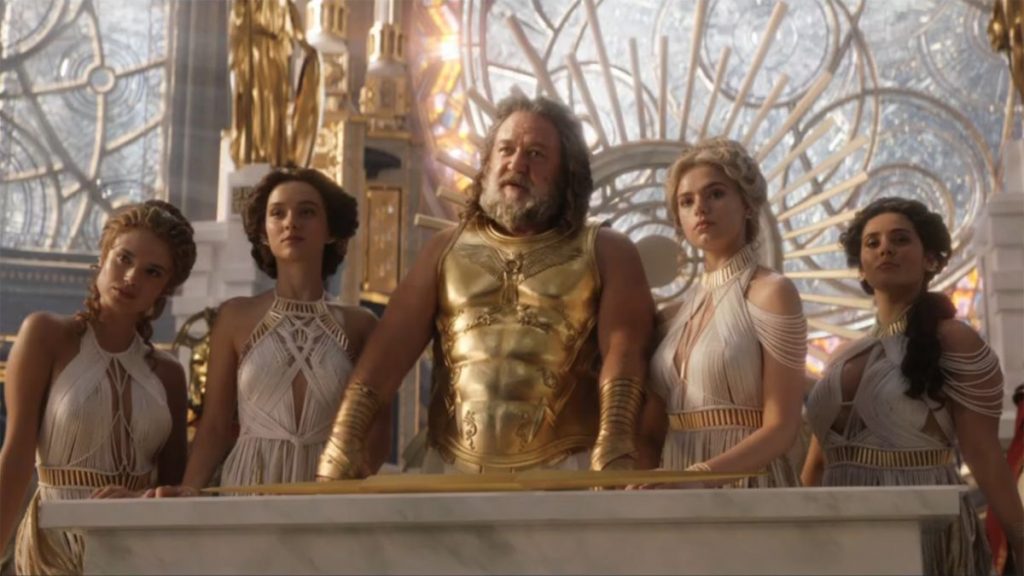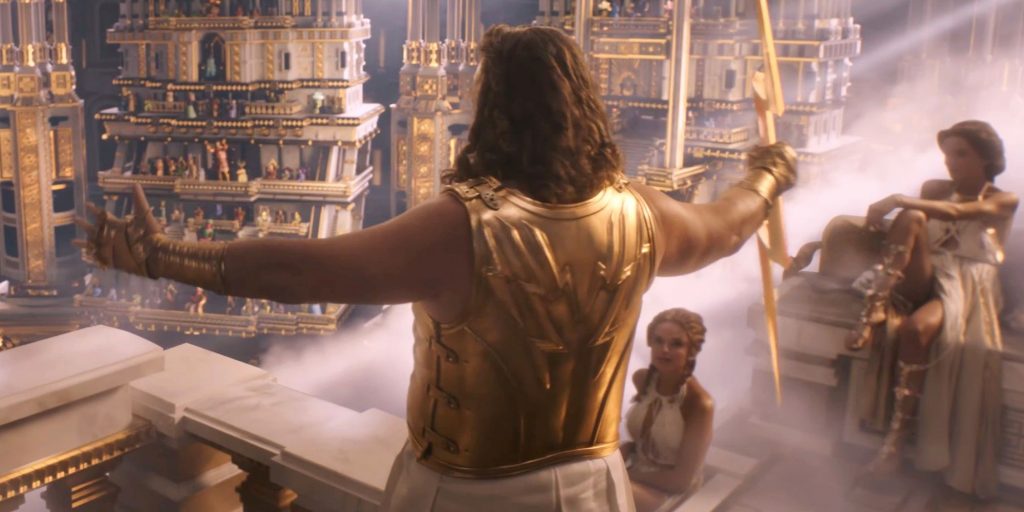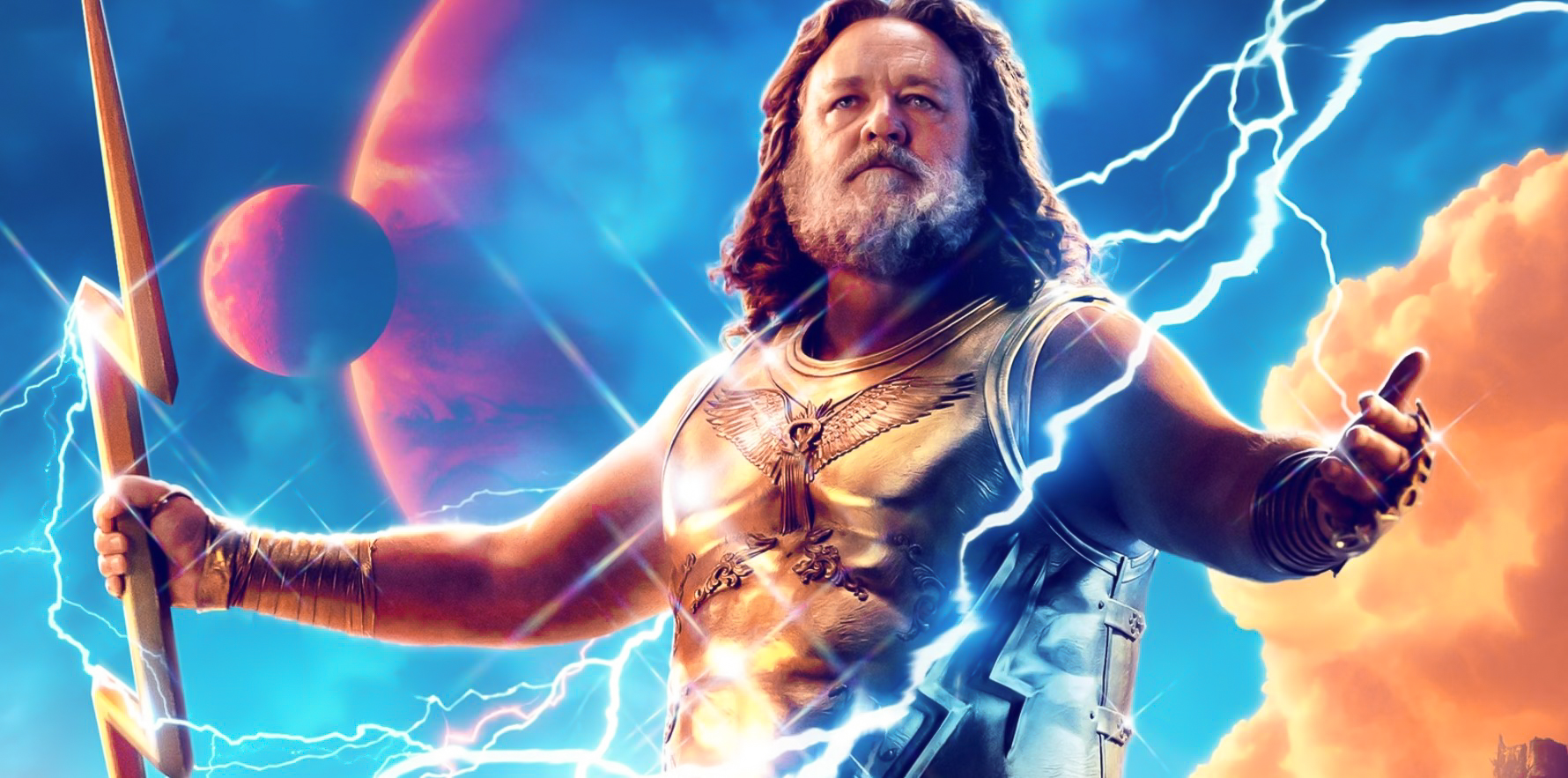By Miltiadis Paikopoulos
According to the latest statistics, Thor: Love and Thunder has grossed over $601 million at the international box office and it is the seventh-highest-grossing film of 2022. It is the fourth film in the Thor series, and the 29th film in the ever-expansive ‘Marvel Cinematic Universe’ or MCU, which have collectively been seen by countless millions and grossed over $27 billion at the international box office.
Thor: Love and Thunder has been criticised by some for its inconsistent writing and direction. Known for their signature action-comedy formula, this latest addition to the MCU certainly had moments where the audience burst into laughter at the cinema. As they often must, this film had to balance rapid action segments, casual humour, and the serious theme of a main character’s illness and mortality. It is up to the viewers to what degree they felt this balance was struck effectively.
But, in so far as it relates to the perception of the Greeks, some criticism definitely should follow.
Without spoiling too much for those who have yet to see it, the middle third of the film focuses on Thor, the ‘God of Thunder’, and his entourage seeking the help from their fellow Gods to defeat a villain. In particular, they must track down reclusive Gods who reside in Omnipotence City, and who it turns out, are led by Thor’s inspiration and ‘hero’, Zeus, the Greek ‘God of Lightning’.
Russell Crowe's first appearance as Zeus in #ThorLoveAndThunderpic.twitter.com/kfJPXPBxvL
— Marvel Stans Telugu ❤️⚡️ (@Marvel_Stans) April 18, 2022
Now, not only does this middle third of the film end up bearing no fruit, plot-wise (in that it is redundant to the final third of the film) but it is also the root of my gripe. In fact, it was seemingly implanted within the film to serve as the trigger for a fifth Thor movie, as was almost certainly confirmed by the mid-credits scene. So, other than its redundancy, plot-wise, it is the substantive content of this middle third that is problematic. The writers, Taika Waititi and Jennifer Kaytin Robinson, establish Zeus as a kind of doppelgänger in near-complete antithesis to Thor.
Before he is seen on-screen, Zeus, performed by Russell Crowe, is presented as key to Thor’s plans and as the archetypal ‘inspiration’ for the younger hero. When finally revealed on-screen, the gods’ similarities disappear quickly. Other than the superficial age, weight and aesthetic difference between the two, it becomes apparent that Zeus is to be representative of everything that Thor is not. Zeus is depicted as superficial, vainglorious, debauched and unsympathetic, concerned more with ‘orgies’ and craven seclusion in Omnipotence City. Thor, on the other hand, is shown in great measure to be idealistic, compassionate, brave and sympathetic.

This depiction of Zeus accords only with the most uncritical and skin-deep interpretation of the Greek God that we might glean from the sources, and even then it’s doubtful. As much as this ‘Zeus’ is meant to reflect the Zeus of Greek antiquity, it falls lamentably short. Although the film was probably correct to write Zeus as somewhat pragmatic and haughty, depictions from the numerous ‘sword-and-sandal’ epics of the 1950s and 60s do a much better job in representing nearly all his other aspects. The ‘Zeus’ of this film appears to me as if someone skimmed through the collective sources on the God, and stopped only to read his mythological escapades with a few Nymphs and mortal beauties.
The Zeus whom the Greeks revered as the keeper-of-oaths, to whom they looked up at the cloudy sky, in whose name they kept guests safe under the rules of ξενία, whom they obeyed by founding cities in distant lands, and whom they honoured at the Olympic Games every 4 years, was nowhere to be found in this film. The ‘Zeus’ of Thor: Love and Thunder is at best a shallow phantasm, a blurred, thrice-over facsimile of the ‘Zeus’ one might know after hearing a friend of a friend recount what they could recall from the myths of Zeus and Leda or Europa.
The Zeus whom the Greeks for millennia revered as the ‘King of the Gods’ is essentially unidentifiable with the ‘Zeus’ of this film. What we receive, instead, is a haphazardly written stock-villain, ostensibly forced into the plot to provide the MCU with a fifth Thor movie. Quite frankly, to have transplanted a stock-standard ‘redemption’ or ‘old-mentor’ arc from film history would have been an improvement. When watching the film, I couldn’t help but think how much better (and accurate) Zeus’ depiction would have been, had it followed the lines of the character of ‘Doc Hudson’ from the 2006 film Cars!
In the span of walking away from the cinema with my friends, an alternative was already being drafted in my mind. An old, weathered Zeus, disillusioned with battling evil, focused more with the management of the secluded Omnipotence City, disagrees with Thor at first, and then returns in the final third of the film to save the beleaguered hero, redeeming himself and teaching the younger hero a few things along the way. It’s tried and true, nothing wrong with that. A unique and authentic implementation in this film could easily have been expected from Waititi and Crowe.
Now, I considered whether the ‘Zeus’ of Thor: Love and Thunder was really meant to be the Zeus of Greek antiquity at all. Perhaps it was an accurate depiction, not of that Zeus, but the ‘Zeus’ that has been a character in Marvel comics since 1949? To put it simply and succinctly, from what I can tell, it wasn’t a faithful rendition of that character either. So, we’ve established that the film unnecessarily depicts ‘Zeus’ as unlikeable and villainous. Now then, what’s my gripe with that?

It is clear to me that the Zeus of this film will inevitably be connected by people, no matter how few or many, to both the Greeks of yesteryear and today. Again, Zeus as he is in this film, will be representative of Greeks and Hellenism in the eyes of many, no matter to how superficial a degree one might argue. This is to say nothing of Crowe’s attempt at a ‘Greek accent’. Some might suppose, ‘No trouble! The Greece of Gods and Heroes is over, and Zeus plays no role in our identity today!’ They would be wrong.
Today, us modern Greeks are overwhelmingly represented by Orthodox Christianity, but this issue is not just one of religion, but of culture. It is an issue of identity and one that we in Australia should be acutely aware of. The significant and indelible connection forged over the millennia between the Greece of Zeus and the Greece of Today cannot be redacted. Greeks of the diaspora, bombarded from every angle with looming assimilation, should understand the importance of these cultural connections, in their many shapes and facets, to our Hellenism.
After watching Thor: Love and Thunder, one can’t help but question whether this inaccurate and corrupt depiction of Zeus, symbolic as he is of Greece, a lightning-rod for our past, is something that we can condone as Greeks. Because, after all, is Zeus not Greek too?

